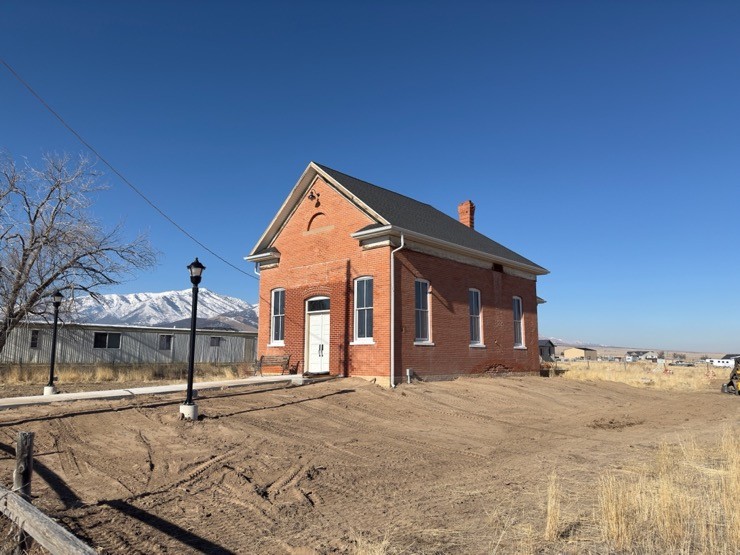The Clover Ward LDS Meetinghouse in Rush Valley, Tooele County, is significant under Criterion A in the areas of Religion and Social History. As a former religious-use building, Criteria Consideration A also applies. However, the building is also significant in areas other than religion. The period of significance is 1907-1951. The building was dedicated in 1907 for religious use by the Church of Jesus Christ of Latter-day Saints (LDS) and began serving as a local community gathering space. The period of significance concluded in 1951 when the congregation relocated to a nearby schoolhouse and the property was sold to the town of Oniqua to be converted into a fire station.
The Clover Meetinghouse is significant under Criterion A in the area of Religion as the primary religious structure used by members of LDS Church in the Clover vicinity. Its origin as an LDS ward came directly from disputes over access to Clover Creek. Under Criterion A in the area of Social History, the Clover Meetinghouse is significant due to its function as a community center and public gathering place for the broader area. On Sundays, the chapel was reserved for religious observance, but during the remainder of the week it was utilized by the small settlement as a social hall, town hall, and public gathering space. The building effectively functioned as the hub of its small community, connecting people within its commodious interior and fostering a shared local culture in a remote pioneer enclave. The Clover Meetinghouse served as a local gathering place for over four decades as the only religious building in the small enclave and one of only two larger public-use buildings in the town of Clover. After the Clover Ward congregation began conducting services in the nearby school in 1947, the building was converted for use as a fire station for several decades. Its original appearance has recently been replicated in an ongoing rehabilitation project.
